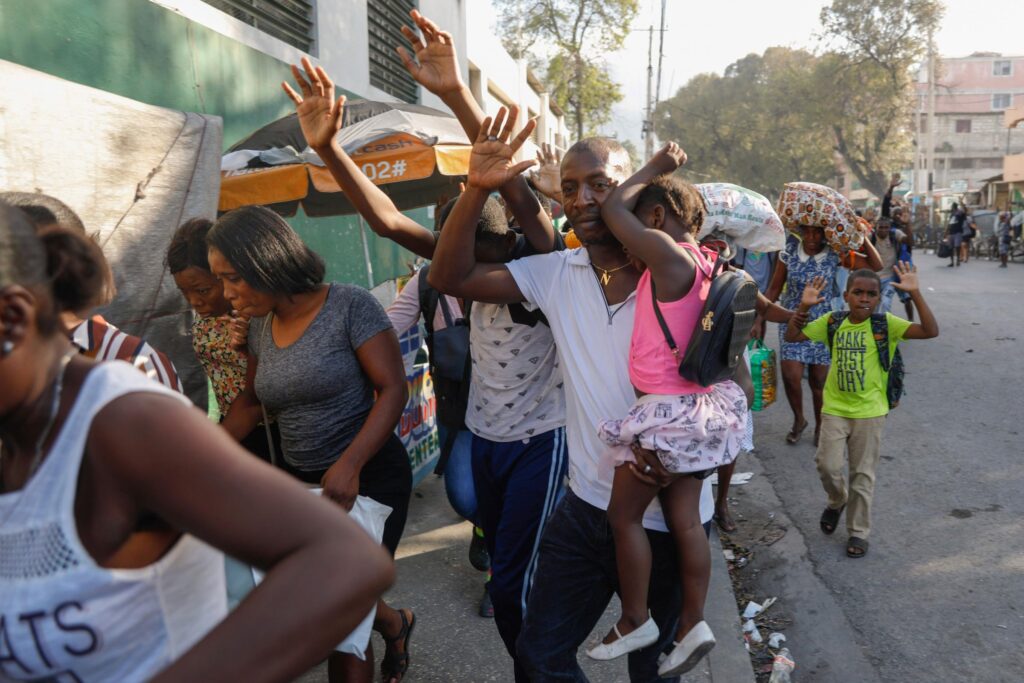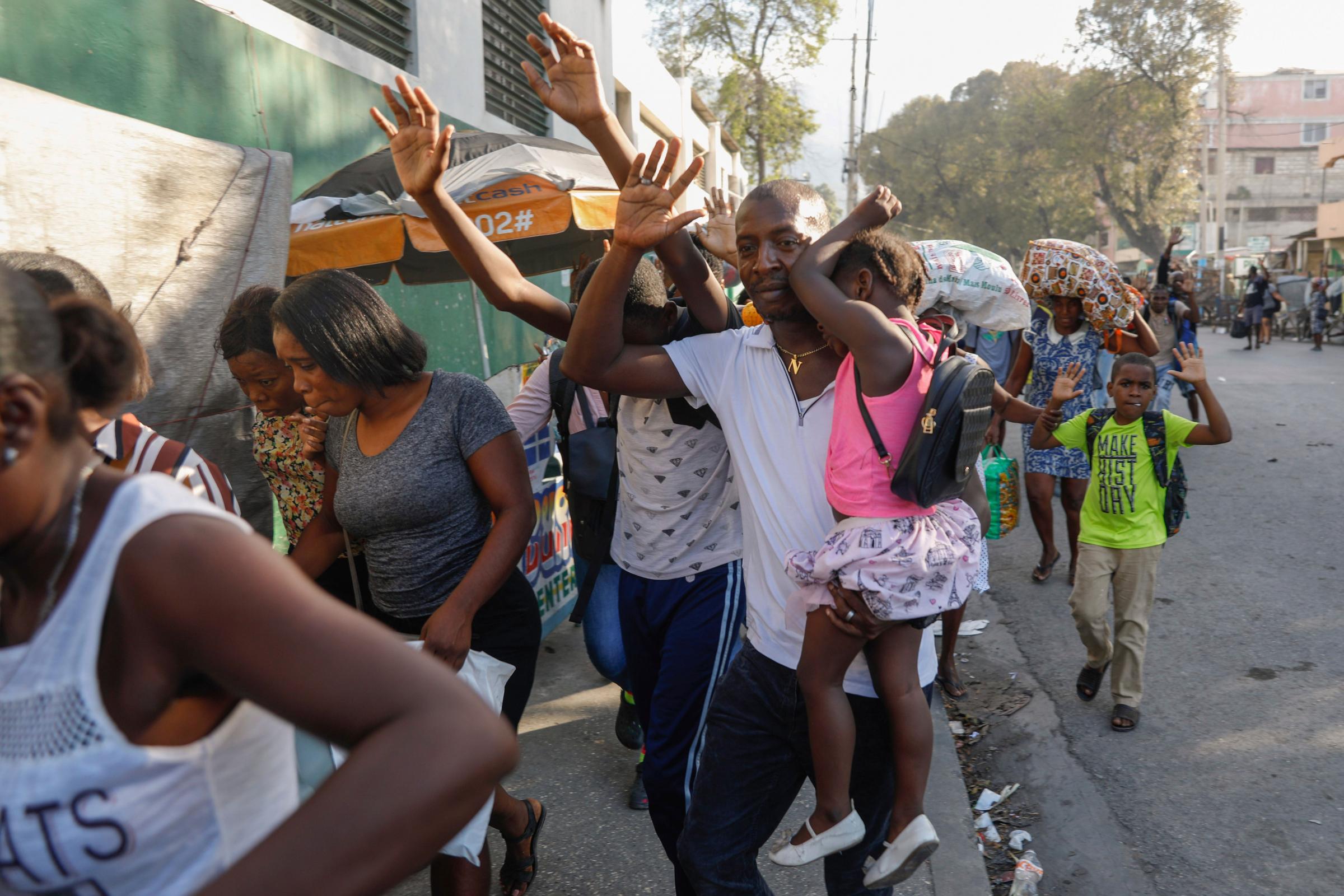
Police stations and the international airport have come under attack in the chaos.
Gun battles raged in several locations of the Haitian capital Port-au-Prince on Thursday, leading to the death of several police officers and forcing dozens of commercial airlines to suspend flights in the troubled Caribbean nation.
Haiti’s main international airport, as well as aircraft, came under fire, forcing international and domestic airlines to cancel operations. Schools, universities and businesses have also been forced to close. At least one airline, Sunrise Airways, suspended all flights.
At least four police officers, including two women, were killed in an attack on a station near the community of Canaan, according to a police union.
A prominent gang leader said multiple factions were parlaying to launch attacks on state security forces in a bid to remove Prime Minister Ariel Henry. Several police stations were targeted in the attack, with two set on fire. The Toussaint Louverture International Airport has also been targeted.
Known as “Barbecue”, gang leader Jimmy Cherisier publicised the attack in a social media video just before the battles began.
“With our guns and with the Haitian people, we will free the country,” he said.
The move came during the absence of Prime Minister Ariel Henry, who is in Kenya trying to finalise details for the deployment of a foreign armed force to Haiti to help combat gangs.
A spokesman for the prime minister’s office could not be immediately reached for comment. The head of Haiti’s National Police, Frantz Elbe, and police spokesman Garry Desrosiers did not return messages for comment.
Security and political crisis
Haiti is engulfed in both a security and political crisis. Armed groups have seized control of large swaths of the country in recent years, meting out brutal violence on civilians and stagnating the economy.
At the same time, thousands have also protested in the streets in the past weeks, demanding that Prime Minister Henry step down from power as he had promised.
There are currently no elected officials in Haiti, with Henry sworn in as prime minister with the backing of the international community shortly after the July 2021 assassination of President Jovenel Moise. Under a political deal, the prime minister was supposed to hand over power to elected officials by February 7 this year, but this is yet to happen.
Henry travelled to Kenya in hopes of moving forward on the deployment of Kenyan police officers to Haiti. A court in the East African nation ruled in late January that the proposed deployment was unconstitutional, but Henry and Kenyan officials have been working on a deal that would allow forces to arrive in Haiti soon.
Speaking ahead of the Community of Latin American and Caribbean States (CELAC) Summit on Thursday, UN Secretary-General Antonio Guterres said Haiti needed a solution after years of political turmoil.
“You can put as many police forces as possible in Haiti [but] if there is no political solution, the problem will not be solved,” Guterres said in the Caribbean nation of Saint Vincent.
On Wednesday, Henry agreed to “share power” with the opposition until fresh elections are held. A date has not been set yet.


